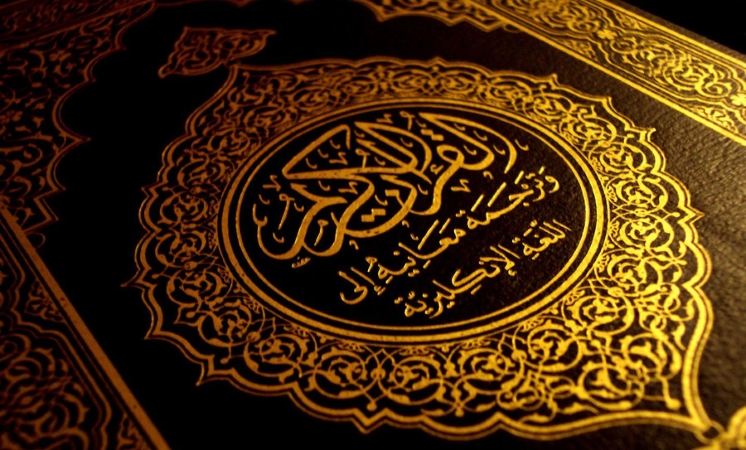The reasons for the fast-rising communal tension in India and abroad was elaborately explained in the judicial verdict pronounced by Z.S. Lohat, Metropolitan Magistrate of Delhi on 31 July 1986, in a case under IPC sections 153-A and 295-A filed by Delhi police against two Hindus, Indra Sain Sharma and Rajkumar Arya, for publishing and circulating a poster in Hindi citing 24 ayats of the Quran under the caption, ‘Why Riots Take Place in the Country’.
The ayats cited in the poster were taken verbatim from an authentic edition of the Quran translated in Hindi and published by a Muslim scholar, Mohammed Farooq Khan of Maktaba al-Hasnat of Rampur in Uttar Pradesh.
In his book, Farooq Khan author provided the original Arabic text of the Quran, along with Hindi and English translations reproduced in parallel columns. On the basis of a complaint lodged with the police, the two Hindu activists were arrested and charged under Sections 153-A and 295-A of the Indian Penal Code for claiming that riots were caused by 24 ayats of the Quran which commanded the Muslims to fight against the followers of other religions. The ayats of Quran cited by the two accused persons were 9.5, 9.28, 4.101, 9.123, 4.56, 9.23, 9.37, 5.5, 33.61, 21.98, 32.22, 48.20, 8.69, 66.9, 41.27, 41.28, 9.111, 9.58, 8.65, 5.51, 9.29, 5.14, 4.89 and 9.14.
The poster further added that
“there are numerous other ayats of the same sort. Here we have cited only twenty-four ayats. Obviously these ayats carry commandments which promote enmity, ill-will, hatred, deception, fraud, strife, robbery and murder. That is why riots take place between Muslims and non-Muslims in this country as well as (the rest of) the world…In the above mentioned twenty-four ayats of the Quran Majid, Mussalmans are commanded to fight against the followers of other faiths. So long as these ayats are not removed (from the Quran), riots in the country cannot be prevented.
On behalf of the government the Assistant Public Prosecutor argued that the ayats at serial No. 2,5,9, 11 to 19 and at serial No.22 in the poster were either not in the Quran, or that they were distorted version of the ayats in the Quran. The accused, however, rebutted the arguments of the government prosecutor and asserted that the ayats cited by them were part of the Quran and had been taken verbatim from the book of Mohammed Farooq Khan and these do exhort the Muslims to fight against the followers of other faiths. They submitted that so long as these ayats continued to be part of the Quran Majeed, communal riots in India cannot be prevented.
The judicial verdict clearly endorsed the view that certain ayats in the Quran have the potential to create communal violence. No appeal was filed against the historic judgment by the leaders of the Muslim community.
After hearing both sides and discussing their arguments, the learned Metropolitan Magistrate discharged the two Hindus, Inder Sain Sharma and Rajkumar, on the ground that prima facie there was no case made out against them. No charge could be framed against the two accused persons because the ayats reproduced in the poster were found to be true and correctly reproduced. The learned Magistrate stated in his order,
“I have personally compared the disputed ayats with Quran Majeed (translated in Hindi) with notes by one Mohd Farookh Khan and found that the most of the ayats have been reproduced in the poster in the original form as is available in the Quran Majeed”.
The learned Magistrate concluded,
“In view of the above discussion, I am therefore of the view that there is no prima facie case against the accused as the offences alleged against the accused do not fall prima facie within the four corners of Sections 153-A /295-A.”
The aforesaid judicial verdict clearly endorsed the view that certain ayats in the Quran have the potential to create communal violence. It is a matter of record that no appeal was filed against the historic judgment by the leaders of the Muslim community on whose complaint the two Hindus were arrested and prosecuted by the police. Apparently they knew very well that their holy book did preach hatred and violence against non-Muslims and for that reason they dared not challenge the judicial verdict by appealing to the High Court. Equally important is the fact that the Delhi government, too, did not think it prudent to file an appeal against the judgment and allowed the judicial truth to remain on record unchallenged.
It is high time that the partisan secularists and media anchors read the aforesaid historical judgment and the relevant ayats of the Holy Quran to understand the real cause of the growing cult of communal violence, even after partition of the country.
Ram Ohri is a former IPS officer and writes regularly on security issues, demographics, and occasionally, on policy.

